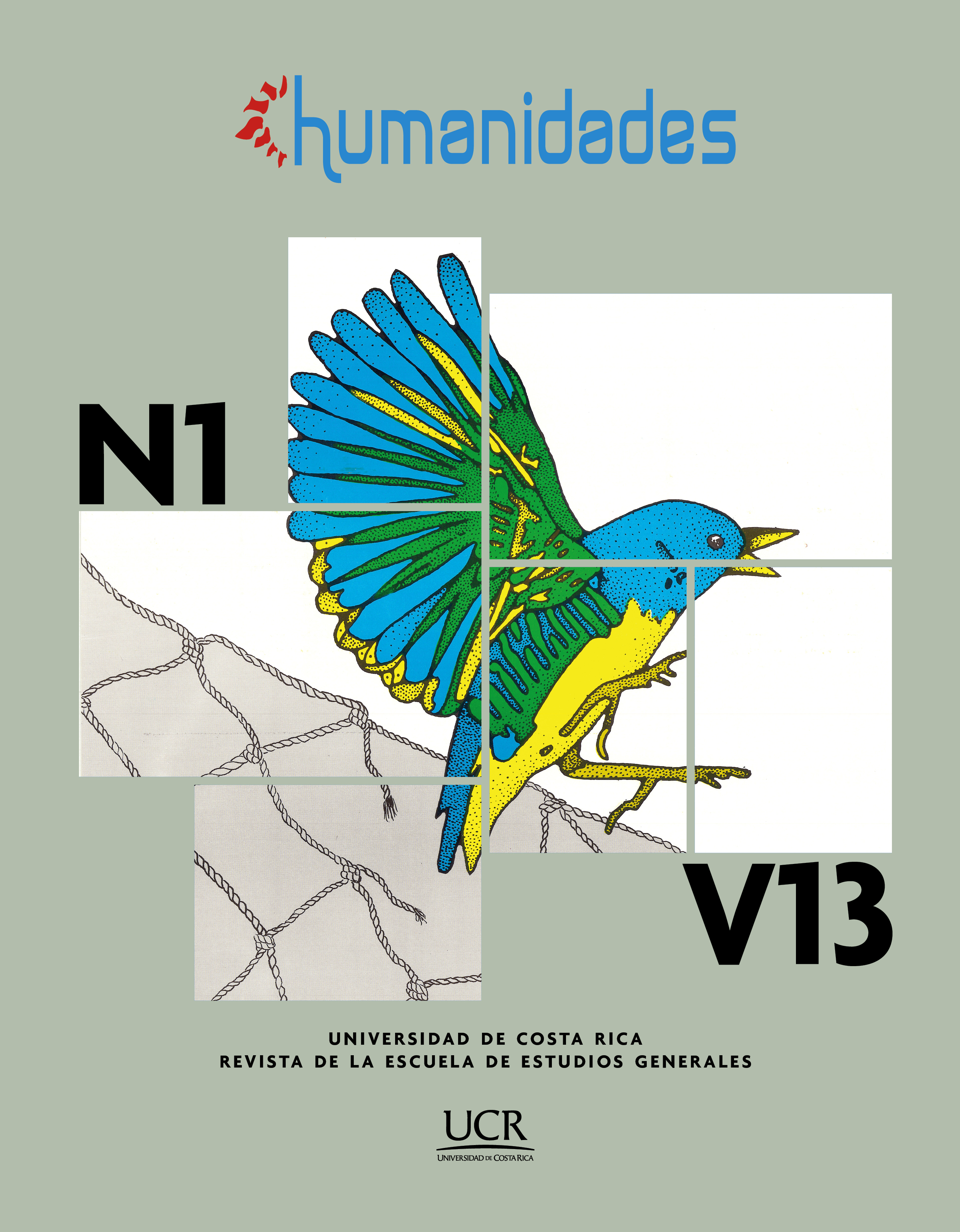Abstract
This paper revisits the online documentation of Eduardo Kac’s work Genesis (1999) in order to address the problematic of embodiment as it emerges in the process of specta(c)torship afforded by this work. The central piece of Genesis consisted in a genetically modified bacteria which incorporated an artist-designed synthetic gene created by translating into DNA base pairs a sentence from the biblical book of Genesis. The reading that I propose problematizes the meaning of the human body in view of the complex entanglement of living and technological systems that appears in this work. Relying on elements from the archival theory formulated by Jacques Derrida, this paper reads Genesis as an attempt to playfully undo the origin (the human master of nature, and the associated duality between culture and nature) form inside the very history that this origin grounds, by folding into one another the cultural archive of the written biblical fragment, the technological archive that makes the work possible, and the DNA as an archive of chemical sequences that constitutes the fundament of life. The article also raises the question of how to address environmental crisis from a perspective that does not rely on the figure of the human and on the nature/culture divide.
References
Băcăran, M. (2021). Imaginary gestures of specta(c)torship: Darie Nemeș Bota’s 'Urban Seashell'. Trivium. A multidisciplinary journal of humanities of Chandernagore College, 5(1), 24-39. https://trivium-journal.in/article.php?article=e9236cebe0b8130defbd1969d75a17b5
Barad, K. (2004). Meeting the Universe Halfway: Quantum Physics and the Entanglement of Matter and Meaning. Duke University Press.
Barnes, P.W., Robson, T.M., Neale, P.J. et al. (2022). Environmental effects of stratospheric ozone depletion, UV radiation, and interactions with climate change: UNEP Environmental Effects Assessment Panel, Update 2021. Photochem Photobiol Sci, 21, 275-301.
Bennett, J. (2010). Vibrant Matter: A Political Ecology of Things. Duke University Press.
Boal, A. (2008). Theatre of the Oppressed (C. A., M.-O. Leal McBride, E. Fryer, Trans.). Pluto Press.
Butler, J. (1990). Gender Trouble: Feminism and the Subversion of Identity. Routledge.
Cubitt, S. (2017). Finite Media: Environmental Implications of Digital Technologies. Duke University Press.
Darwin, C. (1859). On the Origin of Species by Means of Natural Selection, or the Preservation of Favoured Races in the Struggle for Life. John Murray.
Deleuze, G & Guattari, F. (1987). A Thousand Plateaus (B. Massumi, Trans.). University of Minnesota Press.
Deleuze, G. (1994). Difference and Repetition (P. Patton, Trans.). Columbia University Press.
Derrida, J. (1996). Archive Fever: A Freudian Impression (E. Prenowitz, Trans.). The University of Chicago Press.
Derrida, J. (1997). Of Grammatology (G. C. Spivak, Trans.). The Johns Hopkins University Press.
Gouyon, J. B. (2019). BBC Wildlife Documentaries in the Age of Attenborough. Palgrave Macmillan.
Haraway, D. J. (2008). When Species Meet. University of Minnesota Press.
Heidegger, M. (1977). The Question Concerning Technology. In The Question Concerning Technology and Other Essays (Lovitt W., Trans, pp. 3-35). Garland Publishing.
Heise, U. K. (2013). From the Blue Planet to Google Earth. E-flux, 50.
Hui, Y. (2016). On the Existence of Digital Objects. University of Minnesota Press.
Hui, Y. (2016/2019). The Question Concerning Technology in China: An Essay in Cosmotechnics. Urbanomic.
Hui, Y. (2021). Art and Cosmotechnics. University of Minnesota Press.
Hunt, D. (2001). Eduardo Kac: Metaphor into Motif. http://www.ekac.org/dhunt.html. (Originally published in the gallery brochure of Genesis exhibition realized at Julia Friedman Gallery)
Kac, E. (1999). Genesis. http://www.ekac.org/geninfo.html. (Originally published in the catalogue of Genesis, O.K. Center for Contemporary Art, Linz, 1999, pp. 45-55)
Kroeber, A. L. & Kluckhohn, C. (1952). Culture: A Critical Review Of Concepts And Definitions. Harvard University Printing Office.
Latour, B. (1999). Pandora’s Hope: Essays on the Reality of Science Studies. Harvard University Press.
Rancière, J. (2006). The politics of aesthetics (Rockhill G., Trans.). Continuum.
Simondon, G. (1989). Du mode d’existence des objets techniques. Aubier.
Stiegler, B. (1998). Technics and Time 1: The Fault of Epimetheus (Beardsworth R., Collins G., Trans.). Stanford University Press.
Stocker, G. (1999). Uprising. http://www.ekac.org/stocker.html. (Originally published in the catalogue of Genesis, O.K. Center for Contemporary Art, Linz, 1999, pp. 41-43)
Viveiros de Castro, E. (2014). Cannibal Metaphysics: For a Post-Structural Anthropology (P. Skafish, Trans.). Univocal.



